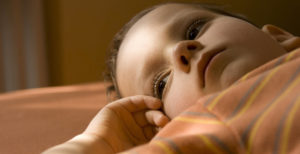How parents relate to their children impacts both physical and emotional health
Is your parenting style making your child sick?
A growing body of research is finding that the way parents relate to their children affects more than their mental and emotional health. It also has an impact on their physical well-being.
In a recent study, researchers compared five separate parenting styles. One in particular—called poor monitoring and supervision—was associated with higher levels of inflammation and an overactive immune-system response in the children. Although both are risk factors for certain conditions such as cardiovascular disease, the research would have to follow the children for many years to know if they had an increased chance of developing such disorders.
Parents categorized for poor monitoring and supervision scored high on a questionnaire on issues such as whether they check to see if their child comes home on time and not telling their children where they’re going.
“These are parents who don’t know where their kids are and what they’re doing,” saysNick Allen, a psychology professor at the University of Oregon and senior author of the study. “They are probably pushing them to be more independent than they are really ready for and it might be creating some stress for the kids.”
Other parenting styles studied included how consistent parents were in their disciplinary techniques and how much positive encouragement they provided to their children. The study, which controlled for other possible influencing factors, involved 102 children, with an average age of 9, and their parents. It was published in the Journal of Family Psychology.
More extreme parenting behaviors, such as abuse and neglect, have been more extensively studied for their impact on children’s health. “But we’re looking at differences in the emotional environment of a family that are much more in the normal range and we still see an effect,” Dr. Allen says.
Other research by Dr. Allen and colleagues showed how family environment can impact brain development. A study published in PLOS One earlier this year found that more aggressive behavior by mothers altered the development of adolescents’ brains in areas associated with thinking and planning and responding to rewards. The study relied on MRI scans of 166 teens conducted over a period of nine years.
“We don’t yet know precisely what the effect of the altered brain development is. But we do know from other studies that changes like this are often associated with great risk for mental-health problems,” Dr. Allen says.
Parenting style’s effect also has been measured in terms of children’s response to vaccination. A study published last year in the journal Brain, Behavior, and Immunityfound that when parents exhibit higher levels of anger and coercive behavior in a parent-child interaction, the children have a weaker immune response to the meningitis vaccine.
The study involved 164 children, ages 10 and 11, who were videotaped interacting with a parent in a task that required them to resolve two sources of conflict. The researchers measured their production of antibodies four weeks, three months and six months after being vaccinated. The researchers controlled for other factors, such as physical health and body-mass index, that might also explain vaccine response, says Thomas O’Connor, a psychiatry professor at the University of Rochester and first author of the study.
Interventions to improve parent-child relationships are aimed at reducing hostility and conflict and encouraging a more sensitive response to caregiving, Dr. O’Connor says. “The next step would be to see if [such interventions] improve physical-health outcomes.”
One such intervention was tested in a study involving 272 mothers and their 11-year-old children in a rural, low-income area of Georgia. The study, published in 2014 in Proceedings of the National Academy of Sciences, was conducted by Gregory Miller, a psychology professor at Northwestern University in Chicago, and colleagues.
Half the group was assigned to a seven-week intervention designed to improve communication and awareness between parents and children. The researchers found that, by the time they turned 19, the children in the intervention group had lower inflammation levels than the control group.
“We showed that some of that was due in fact to changes in parenting and the way kids and their parents interacted,” Dr. Miller says.
SOURCE: http://www.wsj.com/articles/research-finds-parenting-style-affects-children-in-unexpected-ways-1479744903?emailToken=JRrzd/t/YX2Vh9UzbMwm2UYlZ7MDC6qHR1XbNzXSM1LBsmDUp+3k3Lkkg9byqG2hSE1m/JUP7287SSfchi9rWoqMnbNviVqvZ3RR647NwBbOYxiEzRHWIbtE7Q==

